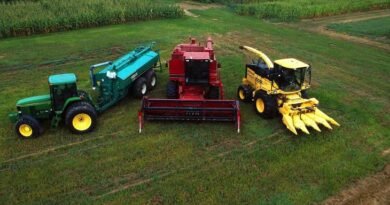The Eco-Friendly Home: Sustainable Plumbing Practices You Can Easily Do
In the contemporary landscape of heightened environmental awareness, the pursuit of a sustainable and eco-friendly home has emerged as a top priority for conscientious homeowners. Among the myriad facets of the household that can be transformed to align with these values, plumbing practices stand out as a crucial arena for impactful change. This blog aims to delve into several sustainable plumbing practices, shedding light on their capacity to not only contribute to a greener planet but also deliver enduring advantages for homeowners.
Water conservation lies at the heart of sustainable plumbing, and one of the most accessible and impactful interventions is the adoption of low-flow fixtures. These innovative fixtures, encompassing faucets and showerheads, are engineered to maintain optimal water pressure while significantly reducing water consumption. By integrating these fixtures into your plumbing system, you not only actively contribute to environmental conservation but also enjoy the tangible benefits of reduced water bills over the long term.
The concept of greywater systems introduces another dimension to sustainable plumbing. Greywater, which consists of lightly used water from showers, sinks, and washing machines, can be repurposed for garden irrigation. Implementing a greywater system not only conserves precious freshwater resources but also provides a pragmatic solution for sustainable landscaping practices, further aligning your home with eco-friendly principles.
In the pursuit of energy efficiency, upgrading to a tankless water heater represents a notable stride towards sustainability. Unlike traditional water heaters that continuously maintain a tank of hot water, tankless heaters operate on-demand, thereby reducing energy consumption and eliminating standby heat loss. This transition not only diminishes your environmental footprint but also translates into significant savings on energy bills, making it a wise and eco-conscious investment.
For responsible waste disposal, the incorporation of composting toilets and dual-flush systems in bathrooms can significantly contribute to sustainable plumbing practices. Composting toilets break down waste into nutrient-rich compost, offering an environmentally friendly alternative. Meanwhile, dual-flush toilets provide water-saving options for both liquid and solid waste, promoting efficient water usage within the household.
In the realm of sewer repair, opting for trenchless technology represents a groundbreaking solution that minimizes environmental impact. Unlike traditional methods that involve extensive excavation, trenchless sewer repair techniques mitigate disruption to landscapes, reducing soil erosion and preserving the aesthetic appeal of your property. This eco-friendly alternative exemplifies the harmonious coexistence of effective plumbing solutions and environmental preservation.
In conclusion, the adoption of sustainable plumbing practices not only aligns with the global imperative for environmental responsibility but also positions homeowners to reap enduring benefits. As you embark on this journey towards a greener home, consider partnering with Ford’s Plumbing & Heating. With a legacy dating back to 1963, they stand as a beacon of expertise, providing licensed and knowledgeable technicians who utilize state-of-the-art tools and equipment to deliver effective and environmentally responsible plumbing solutions.
1. Low-Flow Fixtures: Reducing Water Wastage
One of the easiest and most effective ways to make your plumbing more sustainable is by installing low-flow fixtures. These include faucets and showerheads designed to maintain water pressure while significantly reducing water consumption. Learn how these fixtures not only benefit the environment but also lead to savings on your utility bills.
2. Greywater Systems: Repurposing Water Responsibly
Discover the concept of greywater – lightly used water from showers, sinks, and washing machines – and how installing a greywater system can help you repurpose this water for garden irrigation. This practice not only conserves freshwater resources but also provides a practical solution for sustainable landscaping.
3. Tankless Water Heaters: Energy-Efficient Hot Water
Explore the benefits of upgrading to a tankless water heater. Unlike traditional water heaters, tankless heaters only heat water on demand, reducing energy consumption and eliminating standby heat loss. Uncover why this investment is both environmentally responsible and financially savvy.
4. Responsible Waste Disposal: Composting Toilets and Dual-Flush Systems
Delve into sustainable options for waste disposal in the bathroom. Composting toilets break down waste into nutrient-rich compost, while dual-flush toilets offer water-saving options for liquid and solid waste. Learn how these choices contribute to water conservation and responsible waste management.
5. Trenchless Sewer Repair: Minimizing Environmental Impact
Traditional sewer repair methods often involve extensive excavation, disrupting landscapes and contributing to soil erosion. Discover the environmentally friendly alternative – trenchless sewer repair. Learn how this technology not only preserves the aesthetics of your property but also reduces the carbon footprint associated with traditional repair methods.
Choosing Ford’s Plumbing & Heating for Sustainable Solutions
As you embark on the journey to make your home more eco-friendly through sustainable plumbing practices, it’s crucial to have a reliable partner. Ford’s Plumbing & Heating, with a legacy dating back to 1963, stands out as the leading choice in the Southland area. Their licensed and knowledgeable technicians use state-of-the-art tools and equipment, ensuring effective and environmentally responsible plumbing solutions.
In conclusion, adopting sustainable plumbing practices not only benefits the environment but also contributes to long-term savings. Trust Ford’s Plumbing & Heating for all your plumbing needs, and join the movement towards a greener and more sustainable future.




